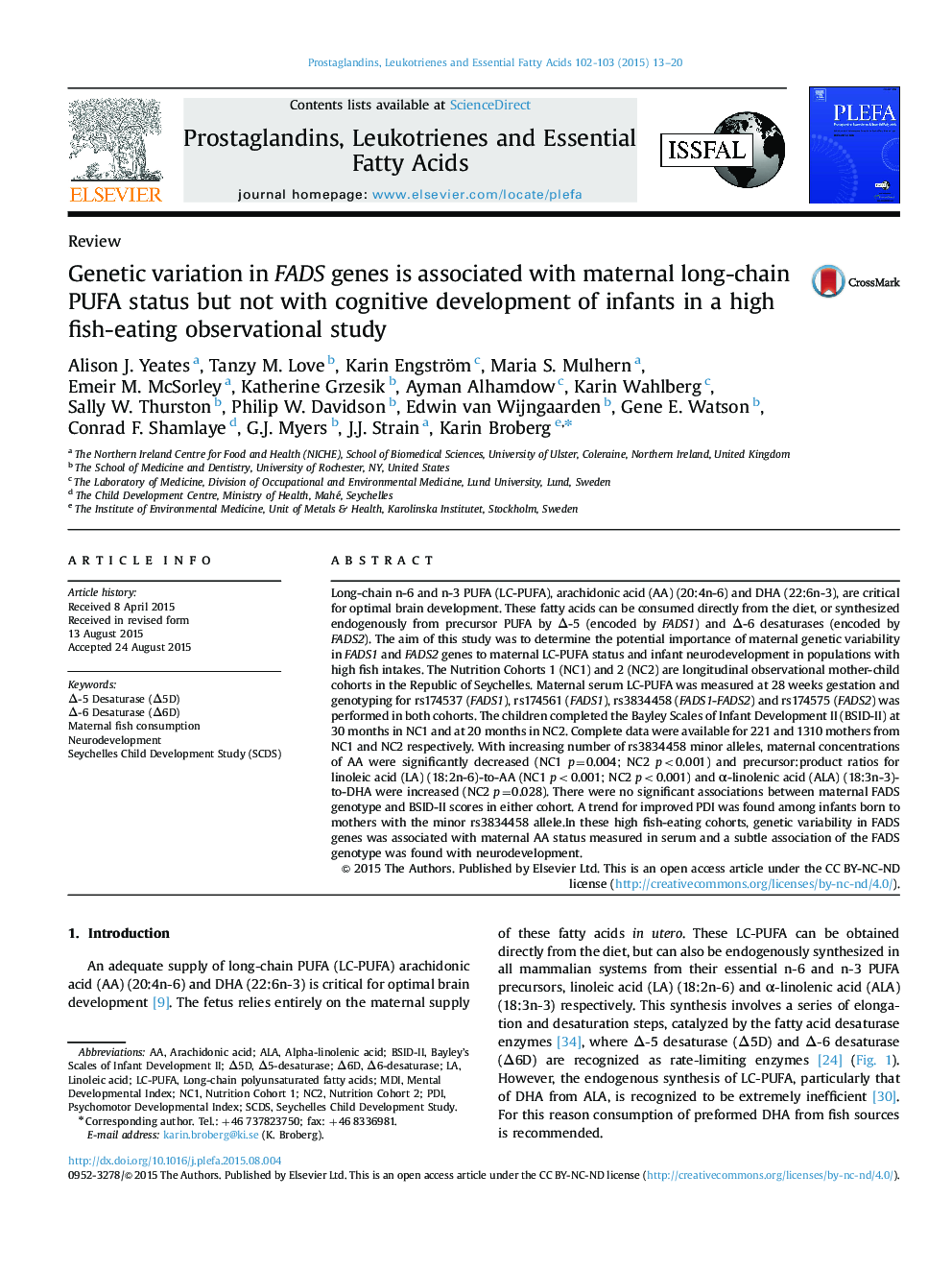| Article ID | Journal | Published Year | Pages | File Type |
|---|---|---|---|---|
| 5888424 | Prostaglandins, Leukotrienes and Essential Fatty Acids (PLEFA) | 2015 | 8 Pages |
Abstract
Long-chain n-6 and n-3 PUFA (LC-PUFA), arachidonic acid (AA) (20:4n-6) and DHA (22:6n-3), are critical for optimal brain development. These fatty acids can be consumed directly from the diet, or synthesized endogenously from precursor PUFA by Î-5 (encoded by FADS1) and Î-6 desaturases (encoded by FADS2). The aim of this study was to determine the potential importance of maternal genetic variability in FADS1 and FADS2 genes to maternal LC-PUFA status and infant neurodevelopment in populations with high fish intakes. The Nutrition Cohorts 1 (NC1) and 2 (NC2) are longitudinal observational mother-child cohorts in the Republic of Seychelles. Maternal serum LC-PUFA was measured at 28 weeks gestation and genotyping for rs174537 (FADS1), rs174561 (FADS1), rs3834458 (FADS1-FADS2) and rs174575 (FADS2) was performed in both cohorts. The children completed the Bayley Scales of Infant Development II (BSID-II) at 30 months in NC1 and at 20 months in NC2. Complete data were available for 221 and 1310 mothers from NC1 and NC2 respectively. With increasing number of rs3834458 minor alleles, maternal concentrations of AA were significantly decreased (NC1 p=0.004; NC2 p<0.001) and precursor:product ratios for linoleic acid (LA) (18:2n-6)-to-AA (NC1 p<0.001; NC2 p<0.001) and α-linolenic acid (ALA) (18:3n-3)-to-DHA were increased (NC2 p=0.028). There were no significant associations between maternal FADS genotype and BSID-II scores in either cohort. A trend for improved PDI was found among infants born to mothers with the minor rs3834458 allele.In these high fish-eating cohorts, genetic variability in FADS genes was associated with maternal AA status measured in serum and a subtle association of the FADS genotype was found with neurodevelopment.
Keywords
Related Topics
Life Sciences
Biochemistry, Genetics and Molecular Biology
Clinical Biochemistry
Authors
Alison J. Yeates, Tanzy M. Love, Karin Engström, Maria S. Mulhern, Emeir M. McSorley, Katherine Grzesik, Ayman Alhamdow, Karin Wahlberg, Sally W. Thurston, Philip W. Davidson, Edwin van Wijngaarden, Gene E. Watson, Conrad F. Shamlaye, G.J. Myers,
